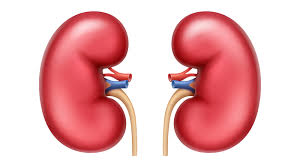What is AKI (acute kidney injury)?

AKI is a rapid reduction in kidney function – resulting in failure to:
- Remove water and electrolytes (minerals such as potassium), and,
- Remove waste (such as urea and creatinine) from the body.
‘Rapid’ means AKI occurs over hours or days. It is a serious illness, and usually requires admission to hospital. It affects both kidneys.
For most people, AKI lasts about 10-14 days, but can be 2 days or 3 months. The kidneys usually recover, and kidney function usually returns to its baseline level (which can be normal).
If the patient is still in AKI at 3 months, we normally assume CKD has started.
It is different from Chronic Kidney Disease (CKD) which has different causes, and occurs over months or years.
The primary problem is not usually the kidneys themselves. They are usually reacting to an underlying current serious condition, such as dehydration and infection (sepsis) after an operation – usually both.
Therefore the patient’s medical condition will be dominated by the underlying disease (cause).

